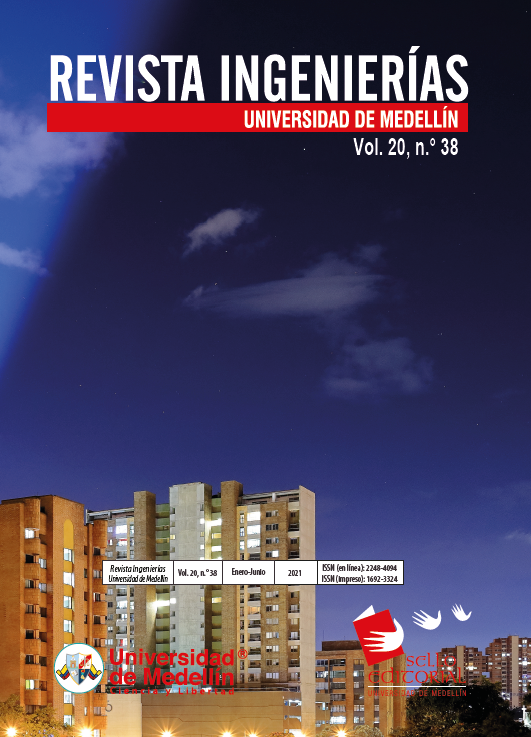A MOOC for Farmers: Agroclimatic Tools for Crop Protection
Main Article Content
Abstract
Massive open online courses (MOOCs) are a key strategy for digital education. The MOOCs contribute significantly to people’s knowledge about a wide range of topics. Nowadays, several web platforms as Coursera and edX offer MOOCs in different domains, however the platforms mentioned do not offer MOOCs focused on crop management through monitoring of climate elements and factors. In this paper, we present an overview of the MOOC titled: 'agroclimatic tools for crop protection' for agricultural-sector Spanish speakers. We show a first MOOC evaluation based on a survey applied to 13 people of rural areas located in Cauca (Colombia) for one video of the 'Temperature' MOOC unit. The results indicated that 100 % of the respondents understood clearly the video content and 53, 84 % of the surveyed learners understood all the words used in the video.
Article Details
References
S. Chattopadhyay, 'ID and Other Reflections: 11 Differences between a MOOC and an Online Course,' ID and Other Reflections, Jun. 26, 2014. http://idreflections.blogspot.com/2014/06/11-differences-between-mooc-and-online.html [Accessed 14-Dec-2020].
A. Wakefield et al., 'Do MOOCs encourage corporate social responsibility or are they simply a marketing opportunity?,' Nurse Educ. Pract., vol. 33, pp. 37-41, Nov. 2018, doi: 10.1016/j.nepr.2018.08.020
'Differences between a MOOC Course and Traditional Online Course,' A Pass Educational Group LLC, Feb. 08, 2018. https://apasseducation.com/education-blog/differences-mooccourse-online-course/ [Accessed 14-Dec-2020].
C. Severance, 'Teaching the world: Daphne koller and coursera,' Computer, vol. 45, 8, pp. 8-9, 2012, doi: 10.1109/MC.2012.278.
S. Sanchez-Gordon and S. Luján-Mora, 'How Could MOOCs Become Accessible? The Case of edX and the Future of Inclusive Online Learning,' J. Univers. Comput. Sci., vol. 22, 1, pp. 55-81, 2016, doi: 10.3217/jucs-022-01-0055
C. Alario-Hoyos, M. Pérez-Sanagustín, D. Cormier and C. Delgado-Kloos, 'Proposal for a Conceptual Framework for Educators to Describe and Design MOOCs,' J. Univers. Comput. Sci., vol. 20, 1, pp. 6-23, Jan. 2014, doi: 10.3217/jucs-020-01-0006
D. J. Morillo, R. P. Álvarez, M. P. Sanagustín, M. S. Sarasty and G. R. Gonzáles, 'Herramienta para facilitar a tutores el seguimiento a las actividades de aprendizaje de sus estudiantes en SPOC,' Nuevas Ideas En Informática Educ., vol. 12, pp. 112-121, 2016.
J. Burgess and J. Green, YouTube: Online video and participatory culture. John Wiley & Sons, 2018.
M. Holmefur, P. Aarts, B. Hoare and L. Krumlinde-Sundholm, 'Test-retest and alternate forms reliability of the assisting hand assessment.,' J. Rehabil. Med., vol. 41, 11, pp. 886-891, Nov. 2009, doi: 10.2340/16501977-0448
E. Lasso, O. Valencia, D. C. Corrales, I. D. López, A. Figueroa and J. C. Corrales, 'A cloudbased platform for decision making support in Colombian agriculture: a study case in coffee rust,' in International Conference of ICT for Adapting Agriculture to Climate Change, 2017, pp. 182-196.
Cenicafe, 'Agroclima: plataforma agroclimática cafetera,' Agroclima. [Online] https://agroclima.cenicafe.org/ [Accessed 14-Dec-2020].
Minagricultura, 'Agronet: Red de información y comunicación del sector Agropecuario Colombiano,' Agronet. [Online] https://www.agronet.gov.co/Paginas/inicio.aspx [Accessed 14-Dec-2020].
C. C. C. Chávez, 'Uso de recursos y materiales didácticos para la enseñanza de inglés como lengua extranjera,' PUEBLO Cont., vol. 28, 1, Art. 1, Sep. 2017.
R. Bušljeta, 'Effective Use of Teaching and Learning Resources,' Czech-Pol. Hist. Pedagog. J., vol. 5, Nov. 2013, doi: 10.2478/cphpj-2013-0014
C. Delgado Kloos, P. Jermann, M. Pérez-Sanagustín, D. T. Seaton, and S. White, Eds., Digital Education: Out to the World and Back to the Campus: 5th European MOOCs Stakeholders Summit, EMOOCs 2017, Madrid, Spain, May 22-26, 2017, Proceedings, vol. 10254. Cham: Springer International Publishing, 2017.





